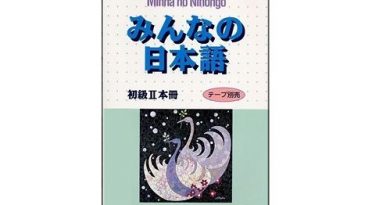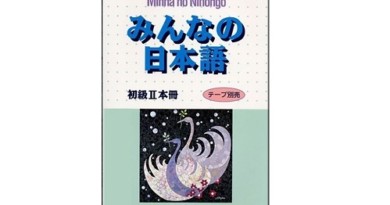Contents
- 1 Learn minna no nihongo lesson 27
- 1.1 6. Mondai
- 1.1.1 Exercise 1: Listen and answer questions
- 1.1.2 Exercise 2: Listen and choose true or false
- 1.1.3 Exercise 3: Convert the sentences
- 1.1.4 Exercise 4: Complete the sentence
- 1.1.5 Exercise 5: Complete the sentence
- 1.1.6 Exercise 6: Fill the particle in the blank
- 1.1.7 Exercise 7: Read the following paragraph and choose true or false
- 1.1 6. Mondai
Learn minna no nihongo lesson 27
6. Mondai
To do the “Mondai” section, you need “minna no nihongo” book and audios for listening
Exercise 1: Listen and answer questions
With this exercise, first you need to listen to the question and write down what you have listened and then answer the question according to your own understanding. You should not try to focus on clearly listening to each word of a sentence then missing the following sentences. You should listen it for the first time, answer the questions one by one, with the questions you can’t listen then listening to them the second time. After that, you can listen again and copy the words to improve your listening skill and remember words better. Finally, after listening and answering all questions, you can refer to the translation and the answer below.
Translation :
1. 人に初めてあったとき、すぐ名前が覚えられますか。
hito ni hajimete atta toki, sugu namae ga oboerare masu ka.
When you first met someone, can you immediately remember their names?
2. ひらがなや漢字が読めますか。
hiragana ya kanji ga yome masu ka.
Can you read hiragana and kanji?
3. あなたの部屋の窓から山が見えますか。
anata no heya no mado kara yama ga mie masu ka.
Can you see mountains from the window in your room?
4. あなたの 町で 一番 高い たてものは 何ですか。いつ できましたか。
Anata no machi de ichiban takai tatemono ha nandesuka. Itsu dekimashitaka.
What is the tallest building in your town? When was it built?
5. 日本には季節が四つあります。あなたの国にも季節が四つありますか。
nihon ni ha kisetsu ga yottsu ari masu. anata no kuni ni mo kisetsu ga yottsu ari masu ka.
There are four seasons in Japan. Are there also four seasons in your country?
Answer :
1. いいえ、なかなか おぼえられません。
iie,nakanaka oboeraremasen.
No, I can not remember.
2. ひらがなと かたかなは 読めますが、漢字は 読めません。
Hiragana to katakana ha yomemasu ga, kanji ha yomemasen.
I can read hiragana and katakana, but I can not read kanji.
3. いいえ、見えません。
Nihonjin to hanashitain desu.
No, I can’t see.
4. 市役所です。200年前 できました。
Shiyakusho desu. 200 nen mae dekimashita
It’s the city hall. It was built200 years ago.
5. はい、私の国にも 季節 4つが あります。
hai, watashi no kuni nimo kisetsu yottsu ga arimasu.
Yes, there are also 4 seasons in my country.
Exercise 2: Listen and choose true or false
With this exercise, the listeners will listen to the conversation, then there will be a key point about the problem that will be raised in the conversation. The listeners must choose whether the content is true or false according to what they has listened. If it is true, select 〇 (maru) and if it is false, choose ✖ (batsu). In this listening section, you should pay attention to the concluding sentence to see whether that sentence is given in a positive or negative form in order to avoid being “tricked” when listening.
1.
男: あのう、このカード 使えますか。
Well, can I use this card?
女: すみません。 現金で お願いします。
I’m sorry. Please use cash.
男:そうですか、じゃ これで。
Oh yes, here you go.
女: はい、600円の お釣りです。 ありがとうございました。
Yes, here is your change of 600 yen. Thank you very much
★ この店は カードが 使えません。
★Can’t use card in this store.
Answer:(〇)
2.
男: どんな 外国語を 勉強しましたか。
Which foreign language did you study?
女: 英語と 中国語 を 勉強しました。
I studied English and Chinese.
でも、英語は 話せますが、中国語は あまり 話せないんです
However, I can speak English, but I can’t speak Chinese well.
男: そうですか。(Is that so.)
★ 女の人は 中国語が 全然 できません。
★ The woman doesn’t understand Chinese at all.
Answer(✖)
3.
男: これが ことしの 新しい製品の。
This is the new product of this year.
女: すみません、よく 聞こえないんですが、 もう 少し 大きい声 で お願いします。
Excuse me, I can’t hear clearly, please speak a little louder.
男:はい、わかりました。
Yes, I got it.
★ 今から 男の人 は 大きい声で 話します。
★ The man will speak loudly from now on.
Answer:(〇)
4.
男: あそこに おもしろい デザインのビル が 見えるでしょう?
You can see a building with an interesting design over there, can’t you?
あれは 東京で いちばん 新しい 美術館です。
That is the newest museum in Tokyo.
女: いつ できたんですか。
When was it done?
男:去年 の 6月に できました。
It was done last June.
女: そうですか。
Is that so.
★ 美術館 は 去年に できました。
★The museum was done last year.
Answer(〇)
5.
女:今度 うちで パーティを するん だけど……。
I will have a party at home this time…
男: じゃ、僕が サンドイッチ、作って あげるよ。
Then, I will make sandwiches for you.
女: サンドイッチ? ありがとう。
Sanwichs? Thank you.
男: ケーキも 作れるよ。
I can make the cake too.
女: ケーキは ミラーさんが 持って 来てくれる から……
Mr. Miller will will bring the cake so…
★ 男の人は サンドイッチと ケーキ を 作ります。
★ The man will make both sandwiches and cake.
Answer (✖)
Exercise 3: Convert the sentences
With this exercise, we will use the verbs in potential form instead of using the structure [Vることができます].
Example:
簡単な 日本料理を 作ること が できます。
⇒ 簡単な 日本料理が 作れます。
I can make simple Japanese food.
Here are some exercises, after finishing, you can refer to the answers and translations below
1. パソコンを 使うこと が できます。
2. カードで 払うことが できます。
3 日本人の 名前を すぐ 覚えること が できません。
4. 長い 休みを 取ること が できませんでした。
Exercise 4: Complete the sentence
This exercise is quite simple like the renshuu section, you just need to read the given information then rewriting the sentence with the same grammar as the example to complete the sentence.
Example :
テレビで 映画を 見ますか(ニュース)
Do you watch movies on TV?
……いいえ、ニュースしか 見ません。
No, I only watch news.
1. スポーツは なんでも しますか。(テニス)
2. 土曜日も 休めますか。(日曜日)
3. きのうは よく 寝られますか(少し)
4. 外国人の 先生を みんな 知っていますか(ワットせんせい)
Exercise 5: Complete the sentence
This exercise is quite simple like the renshuu section, you just need to read the given information then rewriting the sentence with the same grammar as the example to complete the sentence.
Example :
本や 雑誌が 借りられますか。(本・雑誌)
Can I borrow both books and magazines?
……本は 借りられますが、雑誌は 借りられません。
You can borrow books, but you can’t borrow magazines.
Here are some exercises, after finishing, you can refer to the answers and translations below
1. 犬や 猫が 好きですか。(犬・猫)
2. お酒は なんでも 飲めますか(ビーる・ワイン)
3. 家族に 彼のこと と 話しましたか(姉・両親)
4. 富士さんに いつでも 登れますか。(7月と8月・9月から6月)
Exercise 6: Fill the particle in the blank
With this exercise, you need to review the whole grammar that you have learned in the lesson so that you can choose the appropriate particle, in addition you also need to pay attention to the verbs and the verb forms in the sentence to be able to choose the particle exactly.
Example : ミラーさんは 自分で うち (を) 建てることが できます
Mr. Miller can build a house by himself.
Here are some exercises, after finishing, you can refer to the answers and translations below
1. 山の上( )海( )見えます。
2. 電話番号( )知っていますが、住所( )知りません。
3. 学校の近く( )パソコン屋( )できました。
4. 空港へ 電車で 行けますか。
……ええ、バスで( )いけます。
Exercise 7: Read the following paragraph and choose true or false
(1) ドラえもんは 動物です
(2) ドラえもんは ポケットから 便利な 物を だします
(3) 空を 飛びたいとき、「タケコプター」に 乗ります。
(4) 「どこでもドア」が あったら、どこでも 行けます。
Translation and answer
Doraemon
This is doraemon. Japanese children very like Doraemon. He is a robot in a form of a cat, also the main character of a comic.
Doraemon has a mysterious pocket from which can take out various things. For example, “Takecopter” or “Time TV” . When wearing “Takecopter” on the head, you can fly freely on the sky. You can see yourself in the past or in the future on “Time TV”.
The item that I want most is “Anywhere door”. When opening this door, you can go anywhere you want. Everyone, if you can meet Doraemon, which item do you want he to get for you?
Question:
1. Doraemon is an animal(✖)
2. Doraemon takes out useful things from his pocket(〇)
3. If you want to fly on the sky, ride on a “Takecopter”(✖)
4. If you have “Anywhere door”, you can go anywhere(〇)
Above is instruction to Learn minna no nihongo lesson 27. See other lessons in category : learn Japanese with minna no nihongo or: Japanese for beginers.


